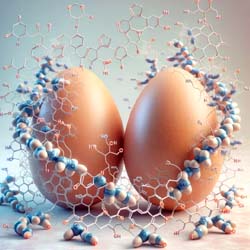Egg Drop Soup Calories | How Many Calories Are in a Bowl?
Egg drop soup calories vary by ingredients and preparation. Learn calories, nutrition facts, and healthier ways to enjoy egg drop soup.
Egg drop soup calories vary by ingredients and preparation. Learn calories, nutrition facts, and healthier ways to enjoy egg drop soup.
Learn about egg drop soup nutrition, a low-calorie Chinese classic. This guide covers protein content, health benefits, and tips to make it even healthier.
Egg Whites vs Whole Eggs: Which wins? Discover why yolks boost muscle by 40%, the truth about lecithin & cholesterol, and the "1:2 Hybrid" rule for 2026.

Get 13g of egg white protein for only 65 calories! 🥚 Unlock the secret to staying full, losing fat, and building muscle with this pure fuel. Read more now!
Get 13g of egg white protein for just 65 calories! 🥚 Discover why this fat-free fuel is the best secret to stay full and build lean muscle. Learn more!

Stop settling for mediocre results! 🚫 Don’t you want to stop the muscle loss and finally see progress with the protein in 6 eggs? Start fueling like a pro!

Stop struggling with hunger! Don't you deserve to know how the protein in 5 eggs can finally fuel your fat loss and keep you energized all day long? ✨

Stop feeling drained! Don't you want the protein in 4 eggs to finally fuel your day and transform your health? Unlock the power of this natural superfood!

Stop settling for tired mornings! Don't you deserve the muscle-fueling power of the protein in 3 eggs to finally crush your goals and feel amazing?

Are you fueling your body right? Discover if the protein in 2 eggs is enough to hit your goals. Master your nutrition and start seeing real results today!

Stop wasting your workouts! The protein in 1 egg is nature’s ultimate fuel. Ignite your power now and see why this tiny superfood is a total game-changer.